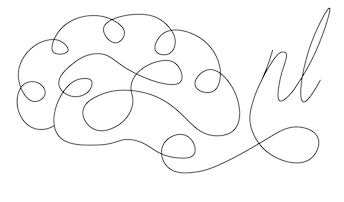Setting Yourself up for Success with Goal Setting
New Light Counselling NL
Setting Yourself up for Success with Goal Setting
New Year’s Day commonly marks the day of "fresh starts", and with all fresh starts comes the process of goal setting. As humans, we strive each year to set bigger and better goals, to reach higher and more exceptional achievements. What could possibly be wrong with trying to improve ourselves and enhance our happiness?
It’s common knowledge that a high number of people who set new year’s resolutions end up ditching them a few weeks or months later. The problem doesn’t lie in our intentions, but rather in our process. We go into the new year with expectations of being able to quit, in the blink of an eye, habits that have solidified over years and years - to stop thinking, feeling, and behaving in ways that have been a part of our daily lives for a long time.
Don’t get me wrong, holding expectations for yourself isn’t a bad thing. Expectations allow us to hold ourselves accountable and make positive changes. But, when expectations are paired with overly ambitious goals, we create the perfect opportunity for disappointment, self-blame, and a loss of personal confidence.
So what can we do?
It is possible to improve the way we set our goals so that we can increase our chances of sticking to them! The importance lies in 1) setting realistic goals and 2) viewing progress as a process rather than a destination.
Setting Realistic Goals. What does a realistic goal even look like? Because each goal is going to be different from person to person, it might be difficult to determine the difference between a goal that sets us up for failure, and one that is manageable and achievable. A helpful trick is using the SMART goal approach. The SMART goal approach helps us to establish goals that are:
S - Specific
M - Manageable
A - Achievable
R - Relevant
T - Time Considerate
This approach helps us break down challenging goals into more manageable and achievable parts. Rather than “I’m going to get in shape”, we start to think about the smaller steps involved. How can I accomplish this goal? What can I do this week? What can I do six months from now? How will I know when I’ve achieved this goal?
By asking ourselves these questions, setting up small steps, and preparing for future difficulties we can increase our likelihood of success!
https://cmcoutperform.com/setting-smart-goals
Every Little Victory Counts. Progress is often viewed as a destination rather than a process. When viewed this way, we often discount the importance of the small steps it takes to reach our goals. Continuing with the example above of “I’m going to get in shape”, we view “being in shape” as the destination, but what goes into the process? Maybe you decide to make changes to your diet, to get outdoors more often and start going to the gym. Each decision you make that contributes to your overall target is a victory in itself and deserves celebration - no matter how small! When we start to appreciate the small victories, we strengthen our confidence and increase our enjoyment in relation to our goals - we use self-compassion rather than self-blame, self-patience rather than irritation, and understanding rather than conflict.
Valerie St-Gelais, MACP, C.C.C.
Do you find yourself asking whether counselling is right for you? No matter your reasons for seeking care, you deserve to feel comfortable and assured. Book a free 15-minute consultation for us to get to know you and your needs better, and offer you an opportunity to ask us any questions you may have!


